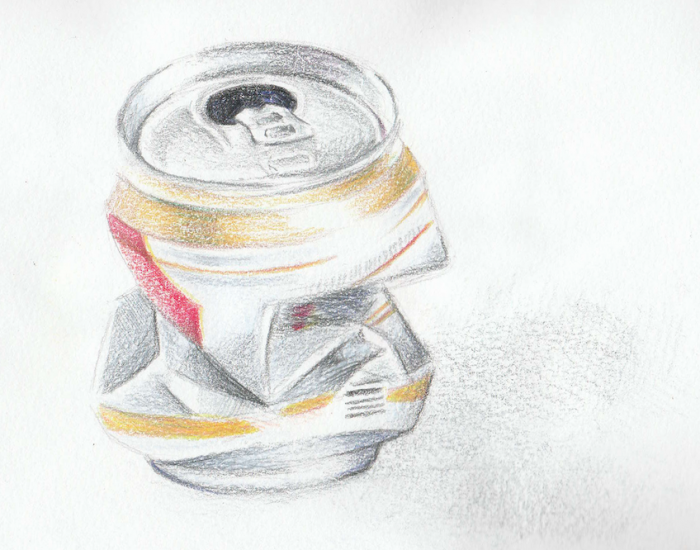A few drinks into one Saturday night in late November, my brother and I made a sacred pact to speak exclusively in freestyle. Walking along the pavement, I giggled as the city spun slightly, my stomach soaring with euphoria. My brother was in what he calls “the happy place”—a state of inebriation where everything is funny and one has no inhibitions. This is what appeals to most people about alcohol intoxication: The giddy feeling it induces and the lack of self-consciousness that accompanies it.
Despite the ubiquitous presence of alcohol at social gatherings, surprisingly few people know how it affects their brain. The body’s responses to alcohol consumption are enabled by the molecule’s simple structure—ethanol is small, composed of only nine atoms. Its tiny size allows it to diffuse freely through most organic structures, including cell membranes, the blood-brain barrier, and a multitude of different neural receptors.
Dr. David Stellwagen, an associate professor in the McGill Department of Neurology and Neurosurgery, elaborated on the specifics of how booze affects the brain in an email to The McGill Tribune.
“The actions of alcohol are complex, and involve changes at many cell types,” Stellwagen said. “Alcohol’s main action is on the inhibitory [Gamma-Amino Butyric Acid or] GABA-A receptor, as a positive allosteric modulator.”
A positive allosteric modulator is a molecule that increases the activity of a protein. In this case, GABA receptors become more active as a result of the binding of alcohol—incidentally, this is the same receptor whose activity Valium upregulates. GABA is the main inhibitory neurotransmitter in the brain, whose role is to tell the neurons to chill out and stop firing. Since the GABA receptor proteins are more active, the effect of the GABA molecule is amplified, and the neuron is less likely to fire.
When neurons don’t fire, they don’t send signals to other neurons, which renders them inactive. When this happens in certain parts of the brain, namely, the prefrontal cortex, it helps to reduce the anxiety we usually experience when contemplating the future and our personal capabilities. However, if too many neurons are impaired, dire consequences can follow.
At high doses, alcohol has also been found to block the effect of a certain type of glutamate receptor, called N-nitrosodimethylamine (NMDA). NMDA receptors in the hippocampus have been found to be necessary for long-term potentiation—the transition of memories from short to long-term. While we can’t be totally sure why blackouts happen, this “blocking” function seems to be a plausible explanation–if memories can’t be “backed up,” they’re forgotten, which would erase any record of the previous night.
However, lost memories are far from the worst possible consequence of alcohol consumption. In an interview with the Tribune, Dr. Edith Zorychta, associate professor of Pharmacology at McGill, expanded on alcohol’s more serious repercussions.
“The more you drink, the greater the inhibition, and it eventually shuts down all parts of the brain,” Zorychta said. “[Overdose] kills by inhibiting the parts of the brain that regulate breathing and circulation.”
Zorychta went on to describe alcohol’s powerfully addictive nature.
“Alcohol is strongly addictive, and chronic users have a difficult time giving it up,” Zorychta said. “There is a dramatic and dangerous withdrawal reaction.”
This is because alcohol tampers with levels of another neurotransmitter; dopamine, the chemical responsible for the initial energetic feeling of well-being after a drink or two. Since dopamine regulates the reward pathway in the brain, it is the change in the level of this same neurotransmitter that causes alcohol and other psychoactive drugs to be addictive.
While drinking can be fun, the brain is a carefully calibrated organ that is sensitive to change. It’s essential to be cognizant of the effects of any drug you put in your body, especially one as commonly used and abused as alcohol.








